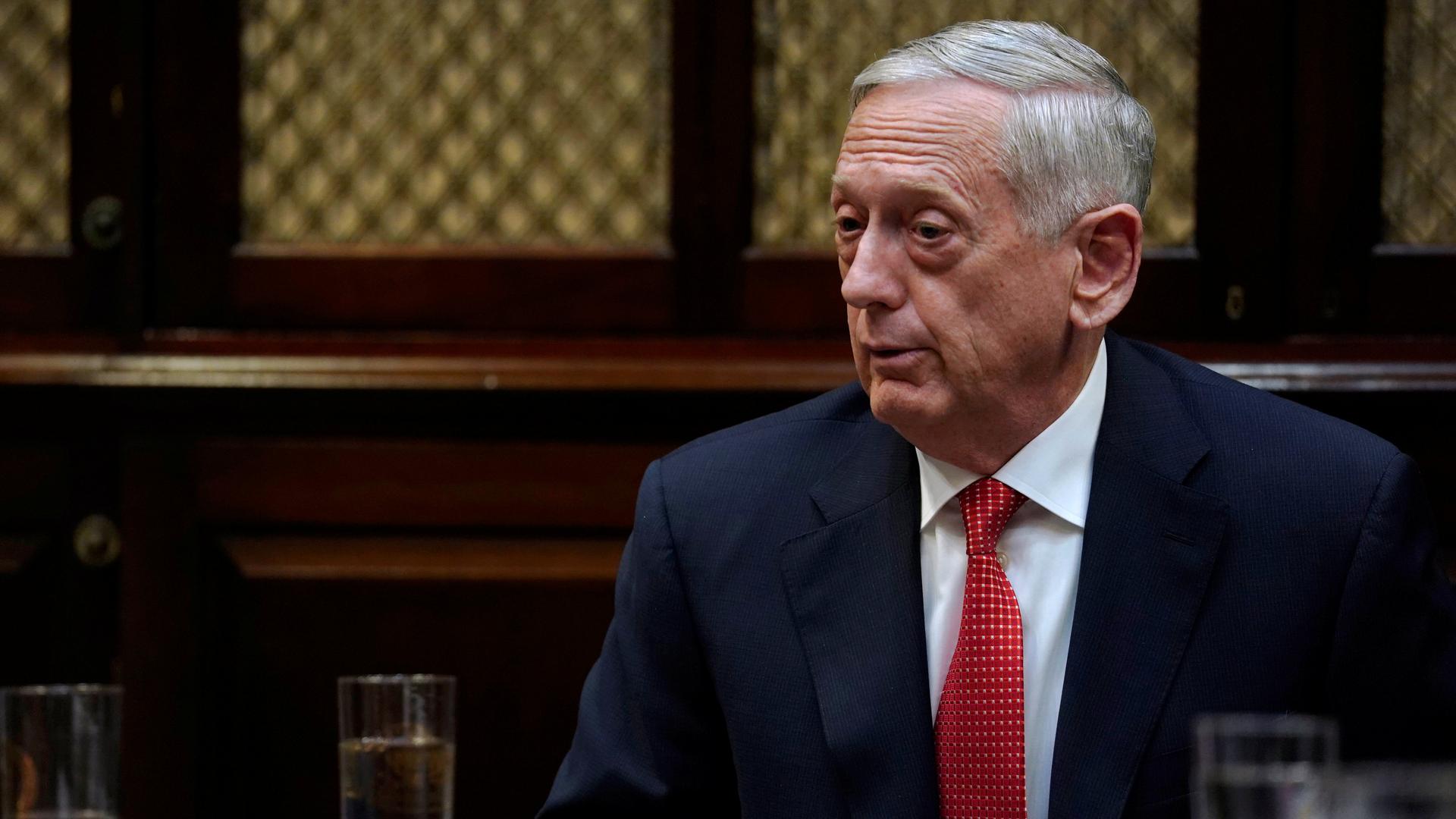The United States military is shifting its stance in Syria, Secretary of Defense Jim Mattis said, as the programme to arm the SDF militants comes to a close and is replaced by increased support to local police and security forces.
Mattis said the Pentagon is “changing the composition of our forces” in Syria to reflect the collapse of the Daesh group there and a renewed emphasis on finding a diplomatic path to peace.
Speaking with reporters on a military plane en route to Cairo, Mattis did not say if there had already been a halt to weapons transfers.
US President Donald Trump informed Turkish President Tayyip Erdogan in a call last week that Washington was adjusting military support to partners on the ground in Syria.
The US programme to arm the Syrian Democratic Forces has been a sharply divisive issue with Turkey, which views the central actors within the SDF—the YPG—as terrorists because of their affiliation to the PKK, a Kurdish group which has waged a three-decade-long insurgency in Turkey.
Mattis told reporters the shift in American forces will support the diplomatic process.
US officials have acknowledged that the US will likely begin taking back large military vehicles and heavy weapons from the SDF, now that major combat operations to retake Raqqa from Daesh are over.
It’s not clear, however, whether the move to provide arms has completely stopped already, or is in the process of ending.
As part of the changing US military role, an artillery unit of about 400 Marines is leaving Syria this week, taking their howitzers with them.
Their exodus still leaves well more than 1,000 US troops in the country. Although the Pentagon will only publicly acknowledge about 500 US forces in Syria, there were at least 1,700 there throughout much of the year as the battle for Raqqa raged on.
“The YPG is armed and as the coalition stops operations, then obviously you don’t need that, you need security forces, you need police forces,” Mattis said. “That’s local forces, that’s people who make certain that ISIS doesn’t come back.”
US commanders have consistently argued that the battle-hardened Kurds were the most effective fighting force available.
In a phone call last week with Turkish President Recep Tayyip Erdogan, President Donald Trump said he’d “given clear instructions” that the SDF will receive no more weapons, according to Turkish Foreign Minister Mevlut Cavusoglu. The White House confirmed the move in a cryptic statement about the phone call that said Trump had informed the Turk of “pending adjustments to the military support provided to our partners on the ground in Syria.”
US officials have been careful in their description of what exactly is happening, leaving open the possibility that some weapons, such as smaller arms, will remain with the SDF militants in case Daesh tries to make a comeback.










Discussion about this post